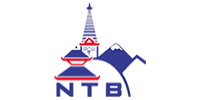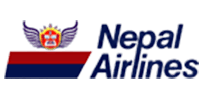-
Places to go
-
Things to do
-
Adventure
Nature
Culture
Wellness
Others
-
-
Festivals & Events
-
Festivals
Event Calendar
-
-
Plan Your Trip
-
Trip Ideas
Travel Details
Book Your Trip
-
- Travel Updates
Shey-Phoksundo National Park
Shey-Phoksundo National Park
Shey-Phoksundo National Park
Shey-Phoksundo National Park
Activities: Trekking, mountaineering
Accommodation: Camping
Access: Fly to Dolpa’s Jufal Airport from Nepalgunj (20 minutes) and then a three-day walk
Wildlife: Sheep, ghoral, musk deer, leopard, wild dog, marmot, weasel, mouse hare, rhesus and langur monkeys, Himalayan tahr, Himalayan black bear and jackals; 6 species of reptiles
Birds: Over 200 species of birds including yellow-throated marten, Tibetan partridge, wood snipe, white-throated tit, wood accentor and crimson-eared rose finch, impeyan pheasant, cheer pheasant, chough, raven, Tibetan snow cock, Tibetan twit, Himalayan griffon and lammergeier
Butterflies: 29 species of butterflies
Vegetation: 286 floral species of ethno-botanical importance: pine, walnut, willow, oak, cypress in the lower altitude and pine, spruce, juniper and birch at higher regions; berberries, wild rose and caragana are seen in alpine areas while the regions higher up are mostly arid with grass alpine meadows with barely any trees
Best Season: March-May and September-October
Park Headquarter: Sumduwa
Added Attractions: Lake Phoksundo, Dho village (one of the highest settlements in the world), Rhigmo village, monasteries and Thanka painting
Entrance Fee: Nepalis -NRS. 25 per person per entry, SAARC nationals -NPR 1,500 per person per entry, Foreigners –NPR 3,000 per person per entry
Nepal Tourism Board is a national tourism organization of Nepal established in 1998 by an Act of Parliament in the form of partnership between the Government of Nepal and private sector tourism industry to develop and market Nepal as an attractive tourist destination. The Board provides platform for vision-drawn leadership for Nepal’s tourism sector by integrating Government commitment with the dynamism of private sector.



